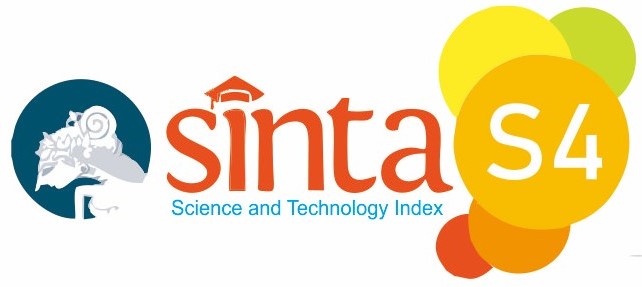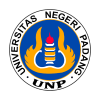HEUTAGOGY APPROACH IN SUPPORTING ONLINE LEARNING SYSTEM AND STUDENTS’ LEARNING MOTIVATION
Abstract
Education has explored and used a variety of approaches in an effort to increase the learning and teaching process for adult learners. Online learning requires learners to be self-motivated and disciplined since they have more control over their schedule and learning environment. Some learners may struggle with staying motivated, managing their time effectively, or maintaining focus without the structure and accountability of a traditional classroom. Self-discipline and motivation are key factors in achieving success in online learning. Here are some strategies to foster self-discipline and maintain motivation in an online learning environment. Heutagogy has recently become a learning method for adult learners. In the heutagogy approach, students are highly autonomous and emphasize the development of students' abilities, with the goal of cultivating students who are ready to face the complexities of today's work world. This method implements a learning approach to an online learning system using the internet and other new technologies to develop and provide teaching methods. Based on recent literature reviews, this article discusses the heutagogy approach in supporting online learning systems. This article provides a basis for using heutagogy as a theory to discuss and study the use of new technologies in online learning. By acknowledging and actively addressing these challenges, institutions and educators can enhance the quality and effectiveness of online learning experiences and better support their students in achieving their learning goals.
References
Adams, P. (2014). Self-determined learning: Heutagogy in action. British Journal of Educational Studies, 62(4), 476–478.
Alghamdi, A., Karpinski, A. C., Lepp, A., & Barkley, J. (2020). Online and face-to-face classroom multitasking and academic performance: Moderated mediation with self-efficacy for self-regulated learning and gender. Computers in Human Behavior, 102, 214–222.
Allen, E. C., Masonheimer, A. T., & Wolters, C. A. (2023). Do dispositional motivational beliefs predict self-regulated learning strategies? An examination of willpower beliefs. International Journal of Educational Research, 119, 102174. https://doi.org/10.1016/J.IJER.2023.102174
Al-Shanawani, H. M. (2019). Evaluation of Self-Learning Curriculum for Kindergarten Using Stufflebeam’s CIPP Model. SAGE Open, 9(1). https://doi.org/10.1177/2158244018822380
An, Z., Lai, C., & Gan, Z. (2023). Motivation in self-directed use of technology for English learning among high, average, and low achievers. System, 115, 103051. https://doi.org/10.1016/J.SYSTEM.2023.103051
Anand, N., Pujar, S., & Rao, S. (2021). A heutagogical interactive tutorial involving Fishbowl with Fish Battle and Round Robin Brainstorming: A novel syndicate metacognitive learning strategy. Medical Journal Armed Forces India, 77, S73–S78. https://doi.org/10.1016/J.MJAFI.2020.12.003
Atmojo, S. E., Muhtarom, T., Lukitoaji, B. D. (2021). The Level of Self-Regulated Learning and Self-Awareness in Science Learning in the Covid-19 Pandemic Era. Jurnal Pendidikan IPA Indonesia, 9(4), 512–520.
Ayres, M., Proce, A., Monk, A., & M. (2016). Using a heutagogical approach to develop an undergraduate GCA module: Developing GCA V2. Research Quarterly for Exercise and Sport, 87, 27–62.
Berdida, D. J. E. (2023). Resilience and academic motivation’s mediation effects in nursing students’ academic stress and self-directed learning: A multicenter cross-sectional study. Nurse Education in Practice, 69, 103639. https://doi.org/10.1016/J.NEPR.2023.103639
Blaschke, L. M. (2021). The dynamic mix of heutagogy and technology: Preparing learners for lifelong learning. British Journal of Educational Technology, 52(4), 1629–1645. https://doi.org/10.1111/bjet.13105
Bykasova, L., Kamenskaya, E., Krevsoun, M., & Podbereznyj, V. (2021). Heutagogy as a Concept of Online Education in Higher School. E3S Web of Conferences, 258, 07073. https://doi.org/10.1051/e3sconf/202125807073
Chamo, N., Biberman-Shalev, L., & Broza, O. (2023). ‘Nice to Meet You Again’: When Heutagogy Met Blended Learning in Teacher Education, Post-Pandemic Era. Education Sciences, 13(6), 536. https://doi.org/10.3390/educsci13060536
Gillaspy, E., & Vasilica, C. (2021). Developing the digital self-determined learner through heutagogical design. Higher Education Pedagogies, 6(1), 135–155. https://doi.org/10.1080/23752696.2021.1916981
Green, R. D., & Schlairet, M. C. (2017). Moving toward heutagogical learning: Illuminating undergraduate nursing students’ experiences in a flipped classroom. Nurse Education Today, 49, 122–128. https://doi.org/10.1016/J.NEDT.2016.11.016
Hainsworth, N., Dowse, E., Cummins, A., Ebert, L., & Foureur, M. (2022). Heutagogy: A self-determined learning approach for Midwifery Continuity of Care experiences. Nurse Education in Practice, 60, 103329. https://doi.org/10.1016/J.NEPR.2022.103329
Hase, S., & Kenyon, C. (2013). Self-determined learning. Heutagogy in action. London: Bloomsbury.
Jones, C., Penaluna, K., & Penaluna, A. (2019). The promise of andragogy, heutagogy and academagogy to enterprise and entrepreneurship education pedagogy. Education + Training, 61(9), 1170–1186. https://doi.org/10.1108/ET-10-2018-0211
Kamrozzaman, N. A., Badusah, J., & Ruzanna, W. M. (2020). Development of heutagogy approach in M-learning for sustainability education. Education and Information Technologies, 25(4), 3035–3047. https://doi.org/10.1007/s10639-020-10101-x
Lynch, M., Sage, T., Hitchcock, L. I., & Sage, M. (2021). A heutagogical approach for the assessment of Internet Communication Technology (ICT) assignments in higher education. International Journal of Educational Technology in Higher Education, 18(1), 55. https://doi.org/10.1186/s41239-021-00290-x
Nkuyubwatsi. (2016). The outcome of constructive alignment between open educational services and learners’ needs, employability and capabilities development: Heutagogy and transformative migration among underprivileged learners in Rwanda. Cogent Education, 3(1198522), 1–11.
Rusli, R., Rahman, A., & Abdullah, H. (2020). Student perception data on online learning using heutagogy approach in the Faculty of Mathematics and Natural Sciences of Universitas Negeri Makassar, Indonesia. Data in Brief, 29, 105152. https://doi.org/10.1016/J.DIB.2020.105152
Syal, S., & Nietfeld, J. L. (2020). The impact of trace data and motivational self-reports in a game-based learning environment. Computers & Education, 157, 103978. https://doi.org/10.1016/J.COMPEDU.2020.103978
Theobald, M. (2021). Self-regulated learning training programs enhance university students’ academic performance, self-regulated learning strategies, and motivation: A meta-analysis. Contemporary Educational Psychology, 66, 101976. https://doi.org/10.1016/J.CEDPSYCH.2021.101976
Tiew, C. C., & Abdullah, M. N. L. Y. (2021). HEUTAGOGY APPROACH IN 21ST CENTURY TEACHING AND LEARNING: PRACTICES AND CHALLENGES IN MALAYSIAN HIGHER EDUCATION. Asean Journal of Teaching and Learning in Higher Education, 13(1). https://doi.org/10.17576/ajtlhe.1301.2021.02
Yao, Y., Wang, P., Jiang, Y. J., Li, Q., & Li, Y. (2022). Innovative online learning strategies for the successful construction of student self-awareness during the COVID-19 pandemic: Merging TAM with TPB. Journal of Innovation & Knowledge, 7(4), 100252. https://doi.org/10.1016/J.JIK.2022.100252
Zhang, W., Lin, Y., Liu, Y., You, H., Wu, P., Lin, F., & Zhou, X. (2022). Self-Supervised Reinforcement Learning with dual-reward for knowledge-aware recommendation. Applied Soft Computing, 131, 109745. https://doi.org/10.1016/J.ASOC.2022.109745
Submitted
Copyright (c) 2024 Jurnal Vokasi Mekanika

This work is licensed under a Creative Commons Attribution 4.0 International License.








.svg_.png)


